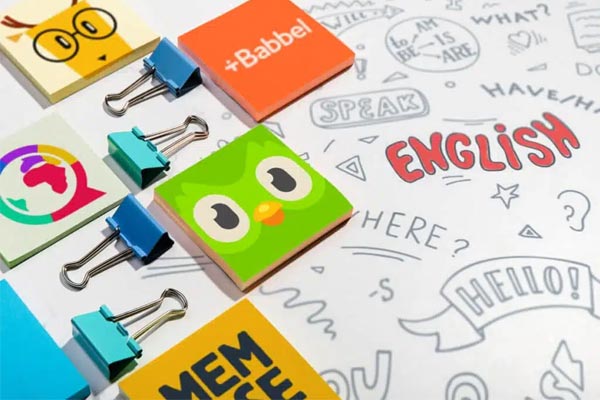In today’s world, many people turn to language apps like Duolingo for help with learning new languages. These apps are simple, easy to use, and can be accessed from anywhere. But when it comes to preparing for the IELTS (International English Language Testing System) exam, can apps like Duolingo really help? Here, we’ll explore how effective these apps are for IELTS prep and whether they should be your main tool for studying.
How Duolingo Works
Duolingo is a popular language-learning app that teaches English through small, interactive lessons. It focuses on vocabulary, sentence structure, grammar, and pronunciation. The app uses gamified methods to keep users engaged, offering rewards for completing lessons, earning points, and unlocking new levels. Duolingo’s lessons are short, easy to digest, and can be done anywhere.
While Duolingo is great for improving general language skills, it doesn’t necessarily focus on the specific needs of the IELTS exam. The IELTS test evaluates your abilities in four areas: Listening, Reading, Writing, and Speaking. So, let’s take a look at how Duolingo addresses each of these skills.
Listening Skills on Duolingo
Duolingo does offer listening exercises, but they are not designed to prepare you for the kind of listening tasks you will encounter in the IELTS exam. The listening practice on Duolingo typically involves short audio clips with clear, slow speech, which may not match the fast-paced, diverse accents and challenging vocabulary used in the IELTS Listening section. The IELTS listening passages include conversations, lectures, and discussions that require more attention to detail and a wider range of vocabulary.
For this reason, Duolingo is not the best tool for mastering listening skills needed for IELTS. For better preparation, you should focus on listening to IELTS practice tests, podcasts, or TED talks, which use the type of language and accents that appear in the test.
Reading Skills on Duolingo
Duolingo has reading exercises, but again, they are not exactly like the IELTS reading test. The IELTS Reading section includes longer, academic texts with a variety of question types, such as multiple-choice, matching, and true/false/not given questions. Duolingo’s reading practice is often more focused on vocabulary and grammar.
While Duolingo is helpful for building your vocabulary and improving your basic reading comprehension, you will need to practice with real IELTS reading materials for more realistic preparation. Using official IELTS practice books or websites is a better way to become familiar with the reading style and difficulty of the actual test.
Writing Skills on Duolingo
One of the main gaps when it comes to Duolingo and IELTS prep is writing. Duolingo doesn’t offer much in the way of writing practice that mimics the writing tasks on the IELTS exam. The IELTS Writing section includes two tasks: Task 1, where you describe a graph, chart, or diagram, and Task 2, where you write an essay in response to a question. Duolingo’s lessons do not offer this kind of in-depth, academic writing practice.
If you want to improve your writing skills for IELTS, you should focus on writing practice tasks, analysing sample essays, and getting feedback from teachers or peers. Using IELTS-specific writing guides can also help you improve your writing technique.
Speaking Skills on Duolingo
Duolingo offers speaking exercises, but these are limited to repeating sentences or answering basic questions. While this may help you with pronunciation and fluency, it doesn’t simulate the IELTS Speaking test’s format. In the IELTS Speaking section, you are asked to have a live conversation with an examiner, which includes answering personal questions, speaking on a topic for 2 minutes, and discussing abstract issues in detail.
For IELTS Speaking, it’s crucial to practice speaking in real-life situations, either with a tutor or by recording yourself. Practice speaking on different topics and work on your fluency and ability to express your ideas clearly.
Conclusion: Does Duolingo Work for IELTS Prep?
In short, Duolingo is an excellent tool for laying a solid foundation in English, particularly for beginners or intermediate learners. However, it doesn’t specifically prepare you for the IELTS exam. If your goal is to do well on the IELTS, you will need to complement Duolingo with other IELTS-focused resources, such as practice tests, writing exercises, and speaking practice.
While Duolingo is a fun and engaging tool for improving general English skills, it’s not a substitute for focused IELTS preparation. To truly succeed on the IELTS exam, you need a strategic, targeted approach, focusing on the specific skills required for the test. That’s where Focus Education comes in. Our expert team offers personalised IELTS coaching, helping you master the test’s format, improve your writing, listening, speaking, and reading skills, and build the confidence you need to achieve a high score. Whether you’re just starting or looking to fine-tune your skills, we provide tailored support to ensure you’re ready for the exam. With Focus Education as your partner, you’ll have the right resources and guidance to succeed in the IELTS and beyond.



